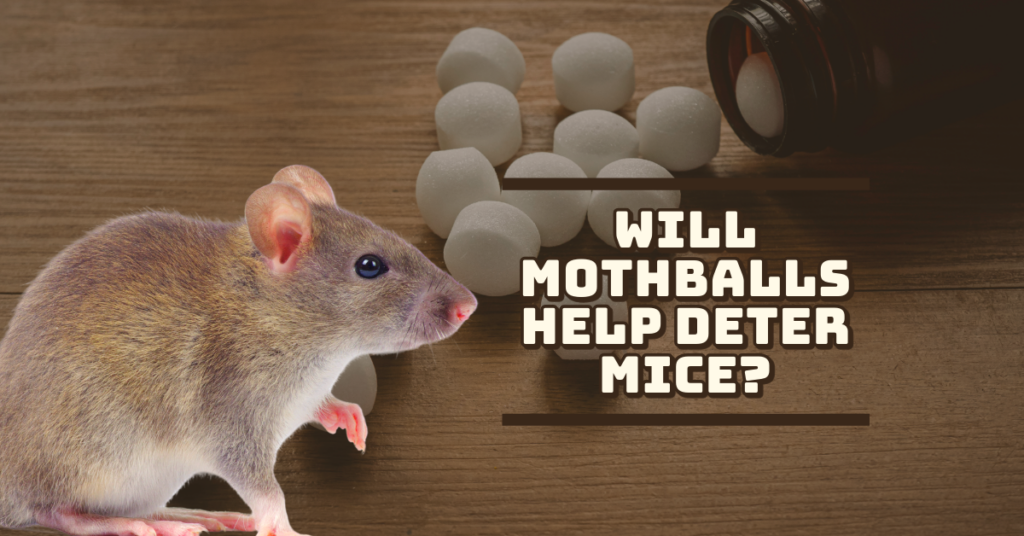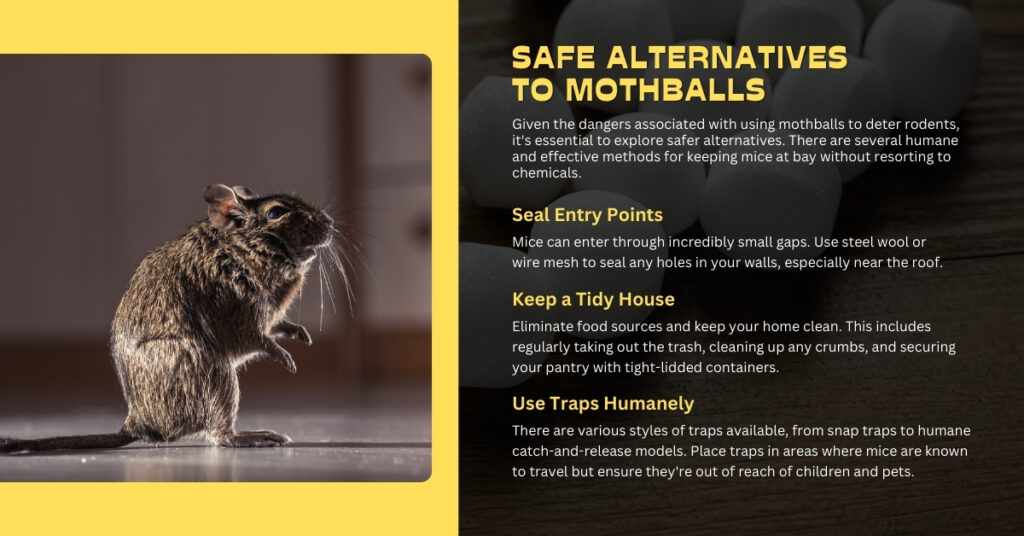 When seeking a path to a mouse-free existence, many homeowners ponder what moth balls are used for beyond protecting sweaters from pests. The lingering scent of mothballs has been purported to get rid of mice, sparking discussions amongst those desperate to reclaim their domestic peace.
However, it's important to approach this method with a clear understanding of its efficacy and implications. Evidence points to more reliable, safer alternatives than repurposing mothballs for rodent control. Accessing professional pest control services is a decision that not only alleviates the immediate pressure of infestation but also ensures the long-term safety and pest control of your home environment. In the robust pursuit of a mouse deterrent, homeowners can find solace in solutions that respect both their peace of mind and the environment, steering clear of methods that pose unnecessary risks.
In this comprehensive guide, we unpack the truth about using mothballs as a mouse deterrent, cutting through the myths and providing real insights into pest control strategies with the support of industry professionals like Truly Nolen.
When seeking a path to a mouse-free existence, many homeowners ponder what moth balls are used for beyond protecting sweaters from pests. The lingering scent of mothballs has been purported to get rid of mice, sparking discussions amongst those desperate to reclaim their domestic peace.
However, it's important to approach this method with a clear understanding of its efficacy and implications. Evidence points to more reliable, safer alternatives than repurposing mothballs for rodent control. Accessing professional pest control services is a decision that not only alleviates the immediate pressure of infestation but also ensures the long-term safety and pest control of your home environment. In the robust pursuit of a mouse deterrent, homeowners can find solace in solutions that respect both their peace of mind and the environment, steering clear of methods that pose unnecessary risks.
In this comprehensive guide, we unpack the truth about using mothballs as a mouse deterrent, cutting through the myths and providing real insights into pest control strategies with the support of industry professionals like Truly Nolen.
The Science of Mothballs
Mothballs are small balls of chemical pesticides that are used to kill moth larvae and discourage adult moths from settling in fabric and other materials. The two most common mothball formulations are paradichlorobenzene and naphthalene, with naphthalene being the active ingredient in traditional mothballs. The concept of using mothballs to scare away mice originates from the strong odour that mothballs emit, which is thought to be offensive to the genetically linked olfactory system of rodents. However, the question is not whether mothballs are effective at warding off mice, but whether they are safe and appropriate to use in a household setting. The short answer is no. Mothballs are not intended for use against rodents and could prove hazardous if mishandled. The Environmental Protection Agency and the National Pesticide Information Centre advise that mothballs should be used only as directed on the label. This direction includes not using mothballs for any purpose not included on the label. Relying on mothballs to deter mice from your home can have severe repercussions. Mothballs are designed for a well-ventilated area and are fatal if ingested, even in small doses. Their odour can also be harmful, leading to nausea, headache, and difficulty breathing when inhaled in enclosed spaces. Even when placed in areas inaccessible to children and pets, mothballs can vaporize into the air and may leave behind residues that can contaminate floors and walls. These residues can remain toxic for a long time, posing risks to household members and pets even after the mice have been driven away.Safe Alternatives to Mothballs
Given the dangers associated with using mothballs to deter rodents, it's essential to explore safer alternatives. There are several humane and effective methods for keeping mice at bay without resorting to chemicals.- Seal Entry Points: Mice can enter through incredibly small gaps. Use steel wool or wire mesh to seal any holes in your walls, especially near the roof.
- Keep a Tidy House: Eliminate food sources and keep your home clean. This includes regularly taking out the trash, cleaning up any crumbs, and securing your pantry with tight-lidded containers.
- Use Traps Humanely: There are various styles of traps available, from snap traps to humane catch-and-release models. Place traps in areas where mice are known to travel but ensure they're out of reach of children and pets.
Mice Myths – Busted
When it comes to mice, urban legends abound. Here are a few mouse myths we often encounter, and the real facts behind them.Cheese is a Mouse's Favourite Food
Contrary to popular belief, cheese isn't a mouse's ideal meal. Mice are actually omnivorous and enjoy various foods, seeds, and fruit. Peanut butter tends to be a more effective bait for traps due to its strong odour and sticky nature. If you spot a mouse in your home, there's a high chance it's not alone. Mice are communal creatures that thrive in groups. A single sighting likely means more are hiding. While poison baits are readily available at most stores, they can pose significant risks to household pets and children if mishandled. They also do not solve the root problem and can lead to unpleasant odours as the poisoned animal often dies within the home's walls.
Truly Nolen's Expert Tips for a Mice-Free Home
To effectively keep mice out of your living space, it's essential to remain diligent and to address the problem at its source.- Regular Inspections: Routine inspections for signs of mice – droppings, gnaw marks, nests – can help you catch and address the problem early.
- Proactive Measures: Prevention is key. Utilize preventive measures such as sealing entry points, setting traps, and optimizing your home's environment to make it less attractive to pests.
- Don't DIY Pest Control: It can be tempting to handle a pest problem yourself, but professional pest control services like Truly Nolen offer the highest level of safety and effectiveness.
- The Environmental Impact: The environmental impact of your pest control choices can't be overstated. DIY methods often involve chemicals and traps that are not eco-friendly. Professional services, on the other hand, focus on preventing the use of toxic substances and promoting practices that are less harmful to the environment.
- The Ethical Aspect: The humane aspect of pest control is often overlooked. But for Truly Nolen, it's a fundamental part of how we approach our work. Our rodent management solutions focus on the ethical treatment of animals, ensuring that your home remains pest-free without causing unnecessary harm to the creatures involved.

